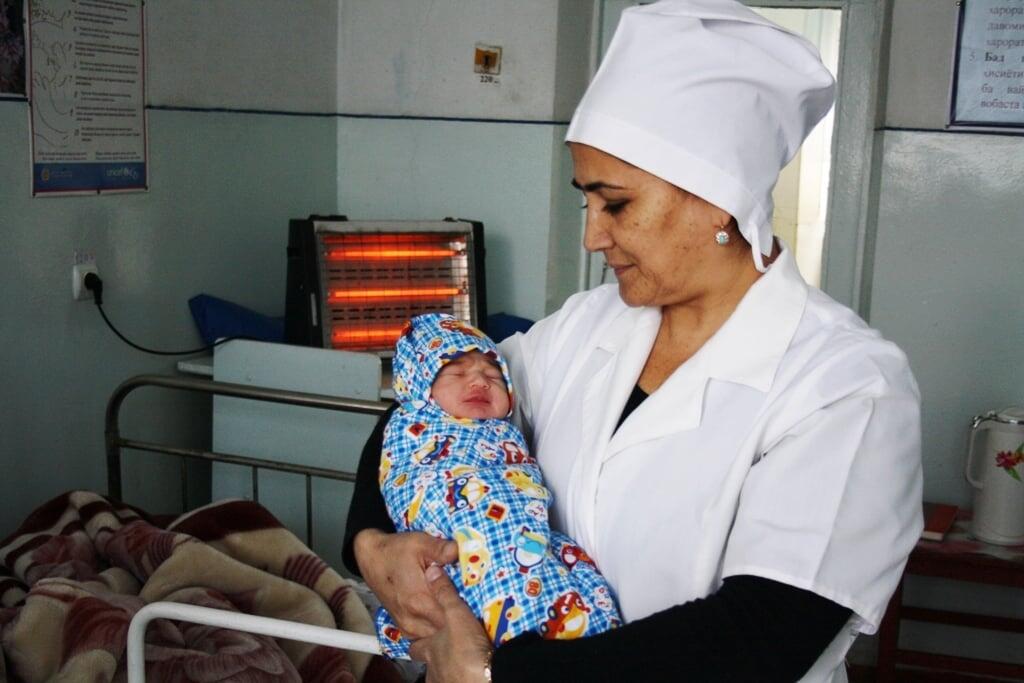Sadaf Atoeva has worked as a midwife at the rural maternity hospital in Rudaki, a town and district in western Tajikistan, for more than 26 years.
She has seen significant changes over the past years: “Women have become more active. They visit the hospital more often for health checks during pregnancy.”
Sadaf Atoeva has also observed that women have fewer children and the intervals between pregnancies have become longer.
This is because women today are much better informed about the family planning options they have and what services they can use, she says. Reproductive health centers, set up across Tajikistan by the Ministry of Health with UNFPA support, have played an important role in providing women with such information. As a result of the health centers’ outreach work, community attitudes towards family planning have been changing, and the number of women using professional hospital services to deliver their babies has been increasing.
“Women come to the hospital much better prepared than they used to be,” says Sadaf, describing the effects of UNFPA’s comprehensive approach to assisting the health system in improving maternal health services. Sadaf believes the hospital where she works is now better equipped for providing maternity services.
Health professionals use new national standards on ante-natal care and evidence-based strategies as a result of UNFPA’s interventions. This means they do not only focus on pregnancy-related risks, but rather treat pregnant women as individuals with certain needs in terms of care and follow up.
“The new perinatal care methods I learned at the UNFPA training are simple and make our work easier,” Sadaf explains. She particularly benefitted from learning about natural birth methods. Women can now choose to deliver in more comfortable positions, rather than on the gynecological table, and the hospital provides individual delivery rooms where mothers can stay with their partners. Also, women are allowed to be with their newborns and breast-feed them much earlier than was the case before.
As a result of these changes, deliveries are significantly less medicalized and therefore less traumatic for the women giving birth at the hospital. The improvements have proved to be successful: “Last year over 750 women gave birth in our hospital and 80 per cent of them decided to go for a natural birth using the new methods,” Sadaf says.
Sadaf says the changes in the district are remarkable: “We see that women, even in remote areas like this, are being aware of birth control methods and the health services available to them. They are more actively engaged in planning their own families and make use of the improved services we provide at the hospital.”
UNFPA’s assistance to the Rudaki hospital is part of a broader multi-year programme aimed at contributing to stability and reducing poverty in Tajikistan by focusing on reproductive health, population and development, and gender equality. The programme’s reproductive health component concentrates on family planning, safe motherhood, reproductive health commodity security, adolescent sexual and reproductive health, HIV/STI prevention and the improvement of health information services.
Parviz Boboev, Communication Focal Point at the UNFPA Tajikistan Country Office, contributed this article.


